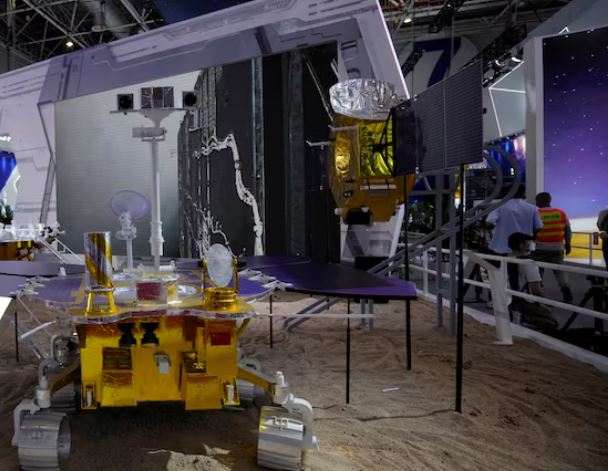A Remarkable Botanical Breakthrough
In an extraordinary leap forward in astrobiology, Chinese scientists have identified a super resilient desert moss species capable of surviving the harsh conditions on Mars. This pioneering discovery, published by the Chinese Academy of Sciences, showcases the potential of Syntrichia caninervis to support life in extraterrestrial environments. This moss, native to China’s Xinjiang region, demonstrates unparalleled endurance against extreme aridity, frigid temperatures, and intense radiation, making it a prime candidate for sustaining human colonies on the Red Planet.
Understanding Syntrichia Caninervis
Syntrichia caninervis, a hardy desert moss, has emerged as a beacon of hope for future space exploration. When subjected to Martian-like conditions, this moss displayed an impressive ability to endure severe dryness, ultra-low temperatures, and high levels of radiation. The research, detailed in the journal The Innovation, elucidates the moss’s potential role in establishing and maintaining ecosystems on Mars by contributing to oxygen production, carbon sequestration, and soil fertility.
Potential for Mars Colonization
The resilience of Syntrichia caninervis extends beyond mere survival. According to the research, this moss can drive atmospheric, geological, and ecological processes essential for supporting higher plants and animals, thereby facilitating the creation of new habitable environments. This capability is crucial for long-term human settlement on Mars, as it paves the way for a self-sustaining ecosystem.
Physiological Adaptations of the Moss
One of the most astonishing findings of the study is the moss’s ability to recover photosynthetic and physiological activities within seconds after rehydration, even after losing more than 98% of its cellular water content. This rapid recovery underscores the plant’s remarkable adaptability. Furthermore, Syntrichia caninervis can withstand ultra-low temperatures, regenerating after being stored at minus 80 degrees Celsius (minus 112 degrees Fahrenheit) for five years or in liquid nitrogen for a month.
Global Distribution and Significance
Syntrichia caninervis is not only found in China’s Xinjiang and Tibet regions but also thrives in diverse and extreme environments such as the Californian deserts, the Middle East, and polar regions. This wide distribution highlights the moss’s adaptability and resilience, traits that are invaluable for space colonization efforts.
China’s Space Exploration Ambitions
The race to expand humanity’s footprint in space has intensified, with both China and the United States launching ambitious exploration plans. China’s space missions include the upcoming launch of the near-Earth asteroid probe Tianwen-2 next year and the Mars sample return mission Tianwen-3 around 2030. Last month, China successfully retrieved samples from the far side of the Moon, further solidifying its position as a formidable player in space exploration.
Implications for Space Colonization
The identification of Syntrichia caninervis as a resilient moss capable of thriving in Martian conditions is a significant milestone in the quest for space colonization. This discovery not only enhances our understanding of extremophiles but also provides a tangible solution for sustaining human life on Mars. By contributing to oxygen production, carbon sequestration, and soil fertility, this moss could serve as the foundation for self-sustaining ecosystems on the Red Planet.
Conclusion: A Pioneering Step Towards Mars Colonization
The groundbreaking discovery of Syntrichia caninervis offers a promising avenue for establishing sustainable human colonies on Mars. As scientists continue to explore the potential of this resilient moss, its unique adaptations and contributions to ecological processes underscore its pivotal role in future space missions. This research not only marks a significant advancement in astrobiology but also brings humanity one step closer to realizing the dream of colonizing Mars.

Basant Kumar Sahoo is a seasoned writer with extensive experience in crafting tech-related articles, insightful editorials, and engaging sports content. With a deep understanding of technology trends, a knack for thought-provoking commentary, and a passion for sports, Basant brings a unique blend of expertise and creativity to his writing. His work is known for its clarity, depth, and ability to connect with readers across diverse topics.



